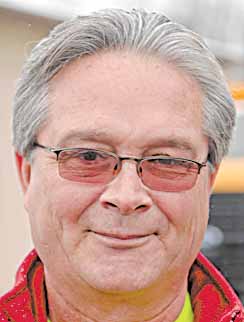1st time: Hubbard Township to seek road levy

Hubbard Township Road Superintendent Walter White.
By LINDA M. LINONIS
HUBBARD TOWNSHIP
For the first time in the history of the township, established in 1801, residents will vote on a 1-mill, five-year road-department levy, which is projected to raise about $98,000 annually. The levy will be on the May 3 ballot.
On a $100,000 residence, the annual cost would be $35.
At a recent meeting, Trustees Fred Hanley, Joe Gleydura and Thomas Jacobs reviewed the financial status of the road department with Sue Goterba, fiscal officer.
The township’s projected 2011 budget is $2.4 million but is not finalized because of uncertainty about state funding. The 2010 road- department budget was $440,000; to maintain the status quo, the 2011 budget would be at that figure or more. Its funds are derived from state money, property taxes, motor-vehicle-license taxes and gas-tax receipts.
Goterba said 2010’s gas-tax receipts were projected to be $118,000, and the township received $100,000. The trustees noted a general decline in state funds for the township and gas-tax receipts.
By Ohio law, road maintenance is one of the mandates for township government. There are 42.6 miles of roads that the township is responsible for; there are 57 miles of county roads and 27 miles of state roads such as state Routes 7, 304 and 62.
Walter White is road department supervisor; there are three full-time employees and one part-timer. Their salaries have been frozen for the last two years. The road department has three big plows with the oldest one being a 1997, a truck and a 4-by-4-vehicle.
“The road department does the maintenance and does a great job,” Goterba said.
The trustees said a combination of factors led to the decision to put the road levy on the ballot.
Snow-removal and salt- and slag-treatment costs have risen along with maintenance costs.
Though the township has applied for and received various grants to improve roads, it also has had to provide “matching funds,” and that has decreased road- department funds.
“We’re asking for what we need, not more than that,” said Gleydura. “We’ve gotten a lot done with what we had.”
Hanley also cited the “overall poor economy in Ohio.”
The trustees said they didn’t want to speculate on what exactly would happen if the levy didn’t pass. They did acknowledge road- department operations and manpower would have to be reduced.
 43
43
